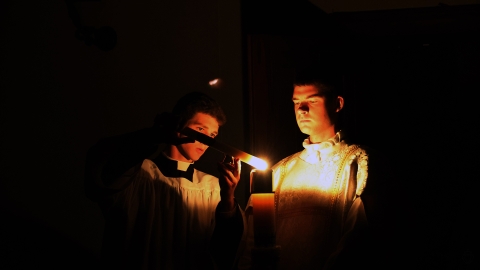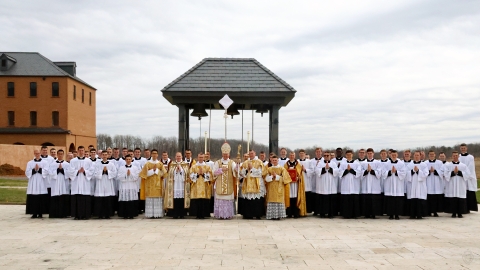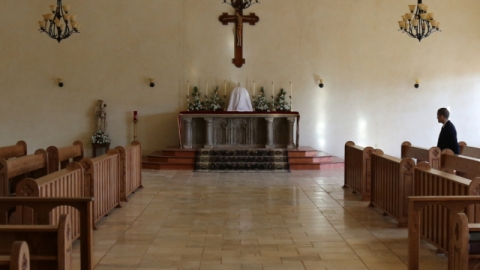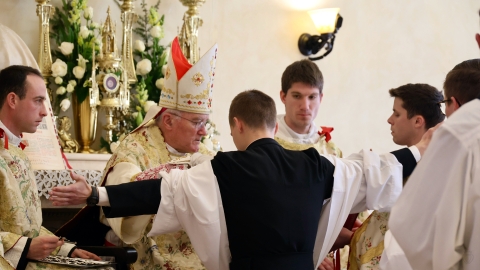Rogation Days 2019

What are Rogation Days?
"Rogation" comes from the Latin "rogare," which means "to ask," and "Rogation Days" are days during which we seek to ask God's mercy, appease His anger, avert His chastisements manifest through natural disasters, and ask for His blessings, particularly with regard to farming, gardening, and other agricultural pursuits. It takes place every year on April 25th and the three days preceding the feast of the Ascension, the former being known as the Major Rogation and the latter as the Minor Rogations.The Major Rogation is of Roman origin, instituted by Pope St. Gregory the Great (b. 540) after a great plague besieged Rome. The Minor Rogation Days are of French origin, coming about in the 5th c., when St. Mamertus, Bishop of Vienne, Dauphiné instituted them after a series of natural calamities. Pope St. Leo III -- the Pope who crowned Charlemagne on Christmas Day of 800 -- introduced these days of penance into Rome in 816, the year of his death, after which they became standard throughout the Roman Church.
The liturgy for the Rogation Days, during which the priest is vested in purple, begins with Psalm 43:26 --"Arise, O Lord, help us and redeem us for Thy name's sake" --Followed by a procession and a Rogation Mass. The procession, which traditionally moved around the territorial borders of the parish, includes the blessing of the fields and other natural features of the landscape during the recitation of the Litany of the Saints.




























